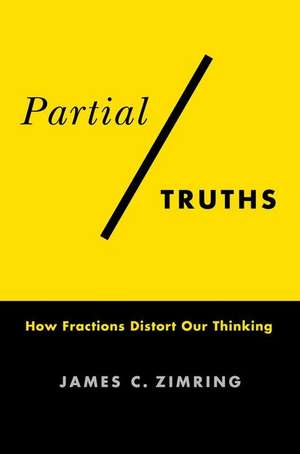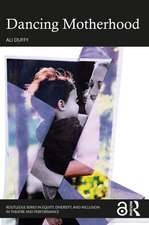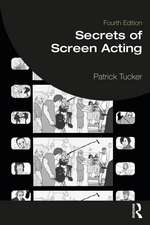Partial Truths – How Fractions Distort Our Thinking
Autor James C. Zimringen Limba Engleză Hardback – 9 mai 2022
| Toate formatele și edițiile | Preț | Express |
|---|---|---|
| Paperback (1) | 128.00 lei 3-5 săpt. | +16.44 lei 10-14 zile |
| Columbia University Press – 29 ian 2024 | 128.00 lei 3-5 săpt. | +16.44 lei 10-14 zile |
| Hardback (1) | 227.78 lei 6-8 săpt. | |
| Columbia University Press – 9 mai 2022 | 227.78 lei 6-8 săpt. |
Preț: 227.78 lei
Nou
43.59€ • 45.23$ • 36.43£
Carte tipărită la comandă
Livrare economică 15-29 martie
Specificații
ISBN-10: 0231201389
Pagini: 248
Dimensiuni: 166 x 242 x 27 mm
Greutate: 0.5 kg
Editura: Columbia University Press
Descriere
A fast-food chain once tried to compete with McDonald's quarter-pounder by introducing a third-pound hamburger-only for it to flop when consumers thought a third pound was less than a quarter pound because three is less than four. Separately, a rash of suicides by teenagers who played Dungeons and Dragons caused a panic in parents and the media. They thought D&D was causing teenage suicides-when in fact teenage D&D players died by suicide at a much lower rate than the national average. Errors of this type can be found from antiquity to the present, from the Peloponnesian War to the COVID-19 pandemic. How and why do we keep falling into these traps?
James C. Zimring argues that many of the mistakes that the human mind consistently makes boil down to misperceiving fractions. We see slews of statistics that are essentially fractions, such as percentages, probabilities, frequencies, and rates, and we tend to misinterpret them. Sometimes bad actors manipulate us by cherry-picking data or distorting how information is presented; other times, sloppy communicators inadvertently mislead us. In many cases, we fool ourselves and have only our own minds to blame. Zimring also explores the counterintuitive reason that these flaws might benefit us, demonstrating that individual error can be highly advantageous to problem solving by groups. Blending key scientific research in cognitive psychology with accessible real-life examples, Partial Truths helps readers spot the fallacies lurking in everyday information, from politics to the criminal justice system, from religion to science, from business strategies to New Age culture.















